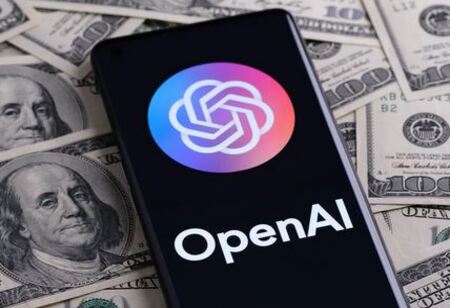
OpenAI Denies Partnership With Robinhood for Stock Tokens

 OpenAI is separating itself from Robinhood's recent venture into cryptocurrency after the trading platform began offering tokenized shares of OpenAI and SpaceX to its European users.
OpenAI is separating itself from Robinhood's recent venture into cryptocurrency after the trading platform began offering tokenized shares of OpenAI and SpaceX to its European users.
The company stated that "any transfer of OpenAI equity requires our consent — we did not grant any transfer," cautioning users to "exercise caution."
Robinhood revealed the launch in Cannes, France, as part of a wider showcase of products that emphasized tokenized equities, staking, and a new blockchain infrastructure initiative.
Following the announcement, Robinhood's stock climbed above $100, reaching a new all-time peak.
To eligible EU users who registered to trade stock tokens by July 7, Robinhood provided 5 euros worth of tokenized assets for OpenAI and SpaceX. These assets are issued under the EU's less strict investor regulations through Robinhood's crypto platform.
This situation underscores the tension between cryptocurrency platforms aiming to expand access to financial products and the companies whose names and equities are being tokenized.
Also Read: Advice from 5 CFOs Germinating Growth and Innovation in 2025
Due to regulatory barriers, users in the U.S. cannot access these tokens.
In light of OpenAI's disapproval, Robinhood spokesperson Rouky Diallo informed TechCrunch that the OpenAI tokens were part of a "limited" giveaway intended to provide retail investors indirect exposure “through Robinhood’s ownership stake in a special purpose vehicle (SPV).”
This implies that Robinhood possesses shares in an SPV that holds a certain quantity of OpenAI’s shares. Similar to the tokens, SPV shares do not equate to direct ownership of the stocks; they represent ownership in an entity that possesses the shares. In some capacity, Robinhood appears to be linking the value of its new tokenized offerings to the OpenAI shares held in that SPV. However, the values of shares within an SPV may also differ from those of the actual stock.
In its help center, Robinhood clarifies that when purchasing any of its stock tokens, “you are not acquiring the real stocks — you are purchasing tokenized contracts that track their pricing, documented on a blockchain.”
Also Read: Japan, Australia, US Leaders Envision Powerful Defense Research Goals
Private companies typically resist any actions that could affect how their equity is valued. Recently, humanoid robotics startup Figure AI issued cease-and-desist orders to two brokers operating secondary markets that were promoting the company's stock. While these scenarios are distinct, generally, most startups prefer not to have people assume that they have authorized share sales if they have not.

